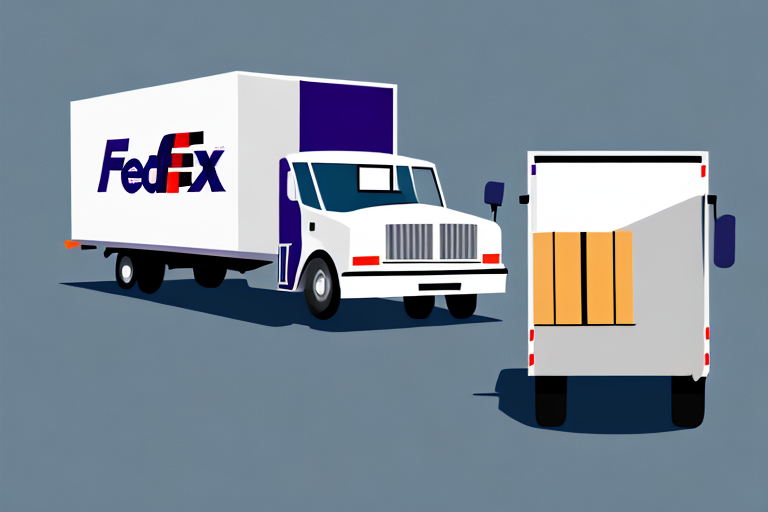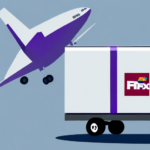Understanding the FedEx Exception Policy
When shipping packages, FedEx is renowned for its reliability and extensive network. However, like any logistics service, unexpected events can occur that may disrupt the standard delivery process. These disruptions are referred to as FedEx Exceptions. Understanding what constitutes an exception and how FedEx manages these situations is crucial for both senders and recipients.
What is a FedEx Exception?
A FedEx Exception is any unforeseen event or circumstance that deviates from the planned shipping route or schedule, potentially delaying the delivery of a package. Such exceptions can range from minor delays due to traffic congestion to more significant issues like natural disasters or customs holdups.
FedEx's Response to Exceptions
FedEx has established protocols to address exceptions promptly. Upon identifying an exception, FedEx updates its tracking system and notifies the customer. The company then works diligently to resolve the issue, which may involve rerouting the package, adjusting delivery times, or initiating compensation procedures if necessary.
Common Types and Causes of FedEx Exceptions
FedEx Exceptions can arise from various sources. Understanding these common types can help customers anticipate potential delays and take proactive measures.
Weather-Related Delays
Severe weather conditions such as hurricanes, snowstorms, and floods can severely impact transportation networks, leading to delays in package deliveries. According to the National Weather Service, weather-related disruptions account for approximately 15% of all shipping delays annually.
Missed Deliveries
If a recipient is unavailable during delivery attempts, FedEx will make multiple attempts to deliver the package. Persistent unsuccessful attempts may result in the package being returned to the sender or held at a FedEx facility for pickup.
Address Errors
Incorrect or incomplete shipping addresses are a leading cause of delivery delays. Even minor errors, such as a missing ZIP code or incorrect street number, can prevent timely deliveries. FedEx advises customers to verify all address details before shipping to minimize this risk.
Customs Issues
International shipments are subject to customs inspections, which can introduce delays if there are discrepancies in documentation or if the package contents raise concerns. The World Customs Organization reports that customs-related delays account for nearly 10% of international shipping exceptions.
Lost or Damaged Packages
Despite rigorous handling procedures, packages can occasionally be lost or damaged during transit. FedEx has measures in place to track lost packages and offers compensation for damaged goods, provided proper documentation is submitted.
Package Refusals
Occasionally, recipients may refuse a package due to various reasons, such as unforeseen customs fees or not recognizing the sender. In such cases, the package is typically returned to the sender, resulting in a delay.
Managing and Resolving FedEx Exceptions
Effective management of FedEx Exceptions ensures that packages reach their destinations as smoothly as possible. Here’s how FedEx handles and resolves these issues:
Real-Time Tracking and Notifications
FedEx offers robust tracking tools that provide real-time updates on the status of shipments. Customers can sign up for email or text notifications to stay informed about any changes or delays.
Customer Support and Resolution
If an exception occurs, FedEx's customer service team is available to assist. Customers can contact FedEx directly to inquire about their package's status and explore available options to expedite delivery or reroute the shipment.
Filing Claims for Lost or Damaged Packages
In cases where packages are lost or damaged, customers can file a claim for compensation. It is essential to provide all necessary documentation, including the shipping label, tracking number, and proof of value, to facilitate the claims process.
Preventing FedEx Exceptions
While not all exceptions can be avoided, several proactive steps can significantly reduce the likelihood of experiencing delays or issues with FedEx shipments.
Double-Check Address Information
Ensuring that all address details are accurate and complete before shipping is the first line of defense against delivery delays. This includes verifying the recipient’s name, street address, city, state, and ZIP code.
Choose Appropriate Shipping Times
During peak seasons, such as holidays, shipping volumes increase, potentially leading to delays. Opting for expedited shipping services during these times can help mitigate the risk of exceptions.
Secure Packaging
Properly packaging items, especially fragile ones, can prevent damage during transit. Using sturdy materials and clearly labeling packages as fragile can reduce the chances of damage-related exceptions.
Impact of External Factors on FedEx Exceptions
External factors beyond FedEx’s control can influence exception rates and delivery times. Understanding these factors can help customers plan better and set realistic expectations.
Pandemic-Related Disruptions
The COVID-19 pandemic significantly impacted global shipping and logistics, leading to increased exception rates due to workforce shortages and heightened shipping volumes. While conditions have stabilized, occasional disruptions may still occur.
Global Economic Conditions
Economic factors such as fuel prices and international trade policies can affect shipping costs and delivery times. Keeping abreast of these changes can help customers anticipate and adapt to potential delays.
Customer Rights and Protections
Customers have specific rights and protections when dealing with FedEx Exceptions. Understanding these rights ensures that customers can effectively address any issues that arise.
Claiming Compensation
If a package is lost or damaged, customers are entitled to file claims for reimbursement. FedEx’s claim process outlines the necessary steps and required documentation.
Service Guarantees
FedEx offers various service guarantees depending on the shipping option chosen. Familiarizing oneself with these guarantees can provide additional assurance and avenues for recourse in case of exceptions.
Comparing FedEx Exception Policies with Other Carriers
While FedEx is a leading player in the shipping industry, it is beneficial to compare its exception policies with those of other carriers like UPS and USPS to make informed shipping decisions.
UPS Exception Handling
UPS employs similar exception management strategies, including real-time tracking and customer notifications. However, specific policies regarding compensation and resolution may vary.
USPS Exception Policies
The United States Postal Service (USPS) handles exceptions through its own set of procedures, which include priority notifications and claims for lost or damaged mail. USPS generally caters to a broader range of package sizes and shipping speeds.
Key Differences
When comparing exception policies, consider factors such as compensation limits, claims processing times, and the availability of expedited resolution services. These differences can influence the choice of carrier based on specific shipping needs.
The Future of FedEx Exception Policy: Predictions and Trends
As the logistics industry continues to evolve, so too will FedEx’s approach to managing exceptions. Emerging technologies and changing consumer expectations are likely to shape future policies and procedures.
Advancements in Technology
Innovations such as artificial intelligence and machine learning are expected to enhance FedEx's ability to predict and mitigate potential exceptions. Enhanced predictive analytics can enable more proactive management of shipments, reducing the incidence of delays.
Sustainability Initiatives
FedEx is increasingly focusing on sustainability, which may influence exception policies. Efforts to reduce carbon emissions and optimize delivery routes can lead to more efficient operations and fewer disruptions.
Enhanced Customer Experience
Customer-centric initiatives, including more personalized tracking and improved communication channels, aim to provide a seamless shipping experience. These enhancements are likely to reduce the impact of exceptions by keeping customers better informed and engaged throughout the shipping process.
Resources for Further Information
For more detailed information on FedEx’s exception policies and shipping guidelines, visit the FedEx Service Guide or consult authoritative industry reports from sources such as the World Bank and the Airlines for America.






















